Uncategorized
-
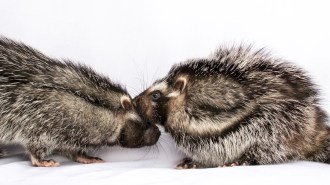 Plants
PlantsRats with poisonous hairdos live surprisingly sociable private lives
Deadly, swaggering rodents purr and snuggle when they’re with mates and young.
By Susan Milius -
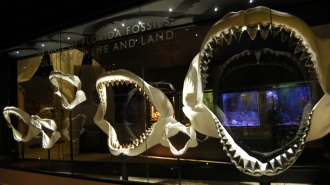 Paleontology
PaleontologyNewborn megalodon sharks were larger than most adult humans
Preserved pieces of backbone suggest that megalodon sharks were about 2 meters long at birth.
-
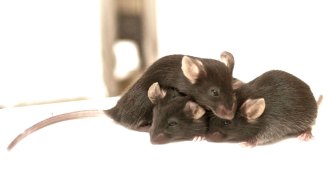 Neuroscience
NeuroscienceMice may ‘catch’ each other’s pain — and pain relief
Healthy mice mirror a companion’s pain or morphine-induced relief. Disrupting certain connections in the brain turns off such empathetic behaviors.
-
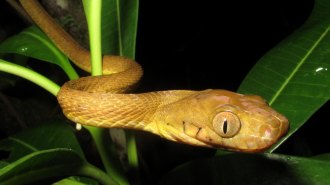 Animals
AnimalsBrown tree snakes use their tails as lassos to climb wide trees
A never-before-seen climbing technique could inspire the creation of new serpentine robots to navigate difficult terrains.
-
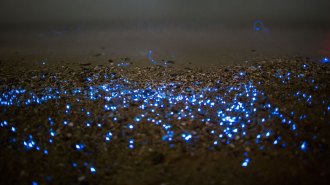 Climate
ClimateOcean acidification may make some species glow brighter
Ocean organisms use bioluminescence for hunting, defense and more. A new analysis shows that declines in water pH might change who glows and how much.
-
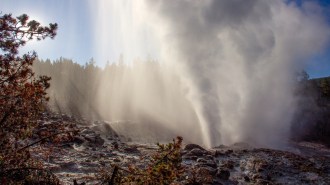 Earth
EarthReawakened Yellowstone geyser isn’t a sign of imminent explosion
The 2018 reactivation of Yellowstone’s Steamboat Geyser isn’t a portent of dangerous volcanic or hydrothermal eruptions, scientists say.
-

For 100 years, bringing you the latest in science
Editor in chief Nancy Shute reflects on a century of science news as the 100th anniversary of Science News arrives.
By Nancy Shute -

-
 Health & Medicine
Health & MedicineA new polio vaccine joins the fight to vanquish the paralyzing disease
Work on the ground to vaccinate children continues in the push to finally eradicate polio.
-
 Science & Society
Science & Society‘The Light Ages’ illuminates the science of the so-called Dark Ages
In telling the story of a monk who contributed to astronomy, a new book shows that science didn’t take a break during the Middle Ages.
-
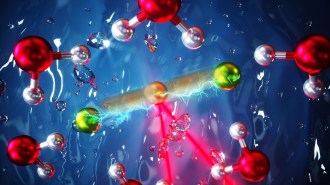 Chemistry
ChemistryThis weird chemical bond acts like a mash-up of hydrogen and covalent bonds
Chemistry students are taught that hydrogen bonds and covalent bonds are distinct, but a new study shows they exist on a continuum.
-
 Genetics
GeneticsSome identical twins don’t have identical DNA
Mutations arising early in development may account for genetic differences between identical twins.